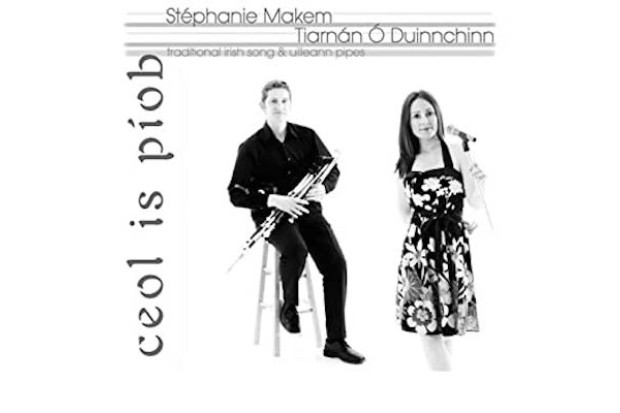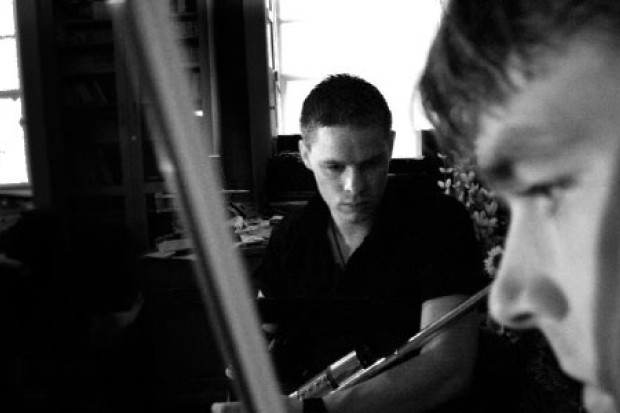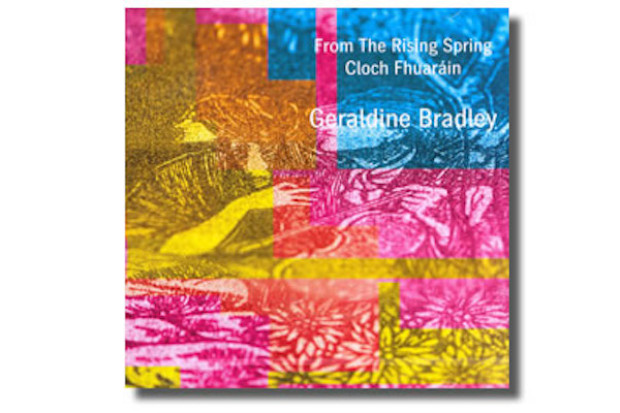Tommy Hayes and Ian Leslie
It’s always with some trepidation that I approach a recording that wears its ‘world music’ heart on its CD sleeve. Bringing ethnic non-indigenous instrumentation into a cultural ‘fusion’ is precarious ground, and can often result in a bland soup of new-age ethno-confusion. But this project of percussionist Tommy Hayes and saxophonist Ian Leslie demands further investigation.
Almost Home has been in gestation for four years; the idea sprang from a meeting of minds between Hayes and Leslie while they were Music Therapy students at the University of Limerick. They shared an interest in world music styles and improvisational techniques, but with Hayes obviously rooted in Irish traditions and Leslie with a finger on the jazz and contemporary music pulse.
The album is a mix of original ideas initially brought to the table as pre-existing works-in-progress, as well as a number of new co-written compositions. Both musicians brought a treasure-chest of instruments to the recording studio: Not only do Hayes and Leslie bring their own particular expertise as bodhrán and sax player, but between them they also play African kora, thumb piano, marimbas and balafons, Brazilian berimbau and cuica, South American guiro, Native American flutes and even Tibetan singing bowls. With the addition of Neil Martin on cello, Carl Corcoran on piano, Isaac Hayes on bass, Brendan O’Regan on mandolin and Sarah Roche as vocalist, it’s a fiery mix that, in the wrong hands, could go spectacularly wrong. And, in places, this album does feel a little overcooked – the improvised berimbau-led ‘Storm Cloud’ opens promisingly, but admits to dissolving into free-form mayhem, and ‘Happy Daze’ does not quite live up to it’s name despite an up-tempo mandolin passage.
Almost Home is an oceanic journey, each track an island to explore. The opener, ‘Accidental Music’, takes a traditional eighteenth-century air played on cello with the African kora and mandolin interwoven. The track establishes an Irish flavour to the album, yet sets the listener up for a series of interesting cross-genre contemporary pieces. Some of these are more engaging than others, with the Tibetan singing bowls and balafon of ‘Soft Day’ offering simplicity and spatial awareness, and ‘Raindrops’, with cello, thumb piano, cuica, keyboard and vocals, swaying effortlessly like an ocean breeze. However, at other times the Western and ethnic instruments seem to be uncomfortable in each other’s presence as in Hayes’ ‘Ah’, where the combination of Jew’s harp, bells, sax, vocals, bass and percussion sounds muddled.
There are a couple of stowaways on the album, and perhaps the ballad ‘For Theo’ or the piano-driven ‘Goodbye’ should be thrown overboard. That said, the musicianship on Almost Home is unquestionable, and the album works as an adventurous collection of quirky and engaging compositions with a cinematic quality.
Published on 1 October 2009
Rachel Blech is a radio presenter for RTÉ Radio 1.












